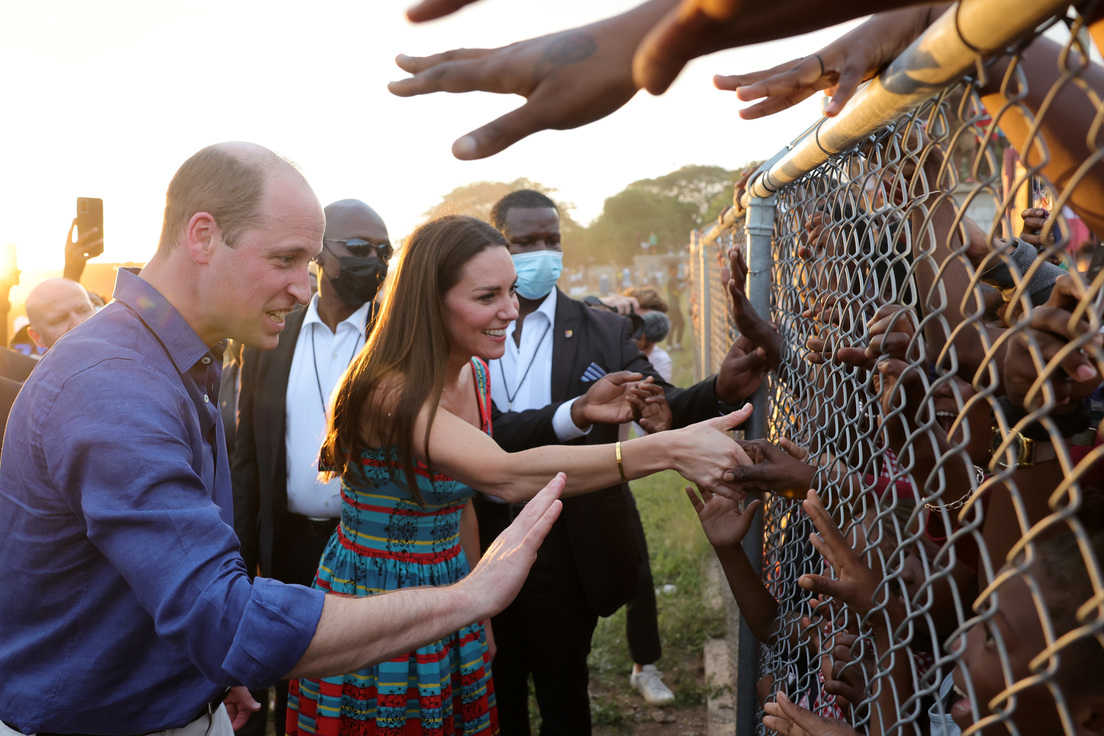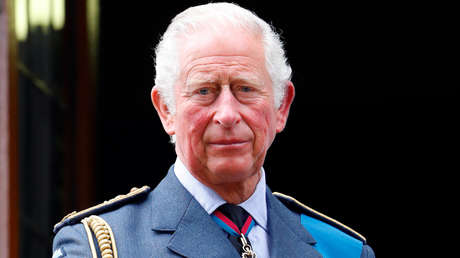One of the challenges of the new British monarch, Charles III, will be to maintain his ties with the Commonwealth of Nations (Commonwealth), a task that is not easy because for years in several countries, especially in the “Caribbean monarchies”, very critical with the slave past and the excesses of the British Empire, republican winds are blowing.
Among the first meetings that the monarch chose as soon as he acceded to the throne, are those he held with senior representatives of the Commonwealth, which shows the enormous interest of the Crown in maintaining its influence in this bloc of 56 countries divided between America, Europe, Africa and Asia.
In 14 nations of the Commonwealth of Nations, born in the 30s of the last century to encompass the states with historical links to the British Empirethe monarch is the head of state, albeit with a ceremonial role.
The list includes rich countries such as Canada, Australia and New Zealand, and eight other small former colonies in the Caribbean and Central America, independent for decades: Antigua and Barbuda (1981), Bahamas (1973), Belize (1981), Grenada ( 1974), Jamaica (1962), Saint Kitts and Nevis (1983), Saint Lucia (1979), and Saint Vincent and the Grenadines (1979).
The Latin American region contributes another four countries (Barbados, Dominica, Trinidad and Tobago and Guyana) to the Commonwealth, but they are republican.
In April 2018, the leaders of the Commonwealth confirmed in a meeting that the then Prince Charles would succeed Elizabeth II, after her death, as honorary leader of the group, since the position is not automatically inherited.
At Buckingham Palace, The King today held an Audience with the Commonwealth Secretary-General and later, accompanied by The Queen Consort, held a reception with High Commissioners from the Realms of the Commonwealth. pic.twitter.com/4l5XOpA6Ah
— The Royal Family (@RoyalFamily) September 11, 2022
But the death of his mother, who enjoyed great charisma, opens a big question about whether the current monarch, 73 years old, will be able to curb the desire to break with the Crown.
“Slavery, hideous atrocity”
The debate also comes after the step taken by Barbados, a small and paradisiacal Caribbean island that became independent from London in 1966 and that in November 2021 cut four centuries of ties with Buckingham Palace to become a republic, although without leaving the Commonwealth.
“The time has come to leave our colonial past completely behind,” the island’s authorities said at the time.
The separation was made amicably, to the point that the current British king – then Prince Charles – attended the ceremony and recognized the “appalling atrocity of slavery”.
But London is trying to prevent the example from spreading, aware of the importance of maintaining its influence in this society of nations that together add up to 2.5 billion people, more than a third of the world’s population, and which is an instrument of economic cooperation and politics.
“The reason why so many countries have remained in the group [es que] they didn’t want to offend her [a la reina]Elisabeth Braw, a member of American Enterprise, told Political.
In Braw’s opinion, the former British colonies remained in this situation longer than they would have liked because “they felt a lot of loyalty to her personally.”
strained relations
At least six countries in Latin America and the Caribbean, including Jamaica, Antigua and Barbuda and Belize, have proposed, or have even initiated procedures, to disassociate themselves from the British Crown.
After the death of Elizabeth II, while Carlos III was confirmed King of Antigua and Barbuda, the Prime Minister of this Caribbean country, Gaston Browne, promised that, in the next three years, he will call a referendum so that the citizens of this former colony of 100,000 inhabitants decide if they want to become a republic. The country is independent since 1981.
“This does not represent any form of disrespect to the monarch. It is not an act of hostility or any difference between Antigua and Barbuda and the monarchy, but it is the final step to complete that circle of independenceto ensure that we are truly a sovereign nation,” declared Browne to the British network ITV.
A clear example of the tense relations between Great Britain and its former colonies was the Caribbean tour that Prince William and his wife Kate Middleton made in March of this year through Belize, Jamaica and the Bahamas on the occasion of the celebration of 70 years in the throne of Queen Elizabeth II.

The couple was received with boos and protests to demand historic reparations for the slavery imposed by the British Empire. Especially controversial was the image of the marriage greeting a crowd behind bars.
On that occasion, the Prime Minister of Jamaica, Andrew Holness, whose country became independent from the United Kingdom in 1962, declared before Prince William that he continued with his goal of being an independent country.
Australia, New Zealand and Canada
In addition to the United Kingdom, last Saturday, Carlos III was recognized in Australia and New Zealand, while Prime Minister Justin Trudeau ratified him as King of Canada together with the representative of the monarchy in the country, Governor Mary Simon.

But in these three important members of the Commonwealth the republican winds are also felt.
A survey carried out after the death of Elizabeth II by the consulting firm Roy Morgab reveals that 40% of Australians prefer to become a republic with an elected president, while the 60% want to maintain the current monarchical system.
His prime minister, Labor Anthony Albanese, who defines himself as a Republican, refused to talk about the state model at this time. “It is not appropriate now to talk about this constitutional change, what is appropriate is to commemorate Elizabeth II’s life of service,” Albanese, who has already ruled out holding a consultation during his first term, said in an interview.
In 1999, 54.87% of Australians rejected the idea of becoming a republic, with a president appointed by the legislature.
For its part, in Canada, a poll conducted in April showed that 67% of Canadians were opposed to Carlos succeeding his mother as king in this country.
In New Zealand, Prime Minister Jacinda Ardern said she was convinced she would see the country become a republic in her lifetime, but not “in the short term.”
If you found it interesting, share it with your friends






![[Img #74661]](https://thelatestnews.world/wp-content/uploads/2024/12/The-power-of-ultrasound-150x150.jpg)








Add Comment